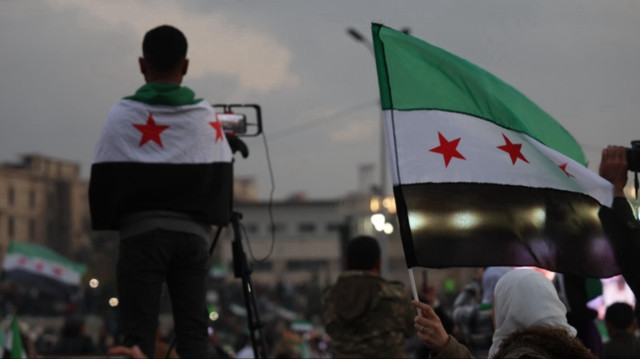The Gulf Cooperation Council (GCC) has reaffirmed its unwavering support for efforts aimed at safeguarding Syria’s unity, sovereignty, and security. This statement followed a phone call between GCC Secretary-General Jasem Albudaiwi and UN Special Envoy for Syria Geir Pedersen on Saturday.
According to a statement released on the GCC’s official website, the two officials exchanged views on ongoing regional and international initiatives to promote Syria’s territorial integrity and stability. Discussions also covered the latest developments in the Syrian crisis and explored avenues for enhancing cooperation between the GCC and the United Nations.
Emphasis on Syria’s Stability and Security
Albudaiwi underscored the GCC’s commitment to backing all measures that contribute to peace and prosperity for the Syrian people. “The GCC countries fully support efforts aimed at achieving stability, prosperity, and security for the brotherly Syrian people,” he stated, calling for international solidarity to ensure Syria’s future as a sovereign and united nation.
He further highlighted the necessity of a comprehensive political solution that respects Syria’s territorial integrity, ensuring long-term stability in the war-torn nation.
Syria’s Leadership Flees Amidst Regime Collapse
The GCC’s affirmation of support comes at a critical time for Syria, following the collapse of President Bashar al-Assad’s long-standing regime. Assad, who led Syria for nearly 25 years, fled to Russia earlier this month after anti-regime groups seized control of Damascus.
On December 8, the Baath Party’s six-decade grip on power crumbled as Hayat Tahrir al-Sham (HTS) fighters executed a swift offensive, capturing several key cities. The campaign, which lasted less than two weeks, ultimately led to the fall of Assad’s government.
A New Chapter for Syria?
The dramatic shift in Syria’s political landscape has left the international community closely monitoring the country’s future. The GCC’s call for unity and sovereignty reflects broader concerns about potential fragmentation or prolonged instability in the post-Assad era.
The GCC emphasized that international cooperation and dialogue are crucial to ensuring that Syria’s future leadership emerges through a process that prioritizes national unity and the well-being of its citizens.
International Engagement and Humanitarian Concerns
The phone call between Albudaiwi and Pedersen also addressed the humanitarian implications of Syria’s ongoing crisis. With millions of Syrians displaced and critical infrastructure damaged, both officials stressed the importance of enhancing aid efforts and rebuilding essential services.
The GCC reiterated its pledge to continue supporting initiatives that alleviate the suffering of Syrian civilians, urging the global community to intensify humanitarian assistance.
Looking Ahead
As Syria enters a new chapter, the GCC’s role in fostering dialogue and supporting diplomatic solutions is expected to remain pivotal. The alliance’s engagement with the UN and other international stakeholders signals a collective effort to navigate the challenges of post-conflict reconstruction and governance.
The fall of the Assad regime marks a turning point, but the road ahead for Syria is fraught with uncertainty. With GCC backing, efforts to restore stability, rebuild the nation, and ensure lasting peace may gain momentum in the months to come.
Related Stories:
Global Efforts Intensify for Peace: GCC Backs Peaceful Solutions in Russia-Ukraine Conflict
















